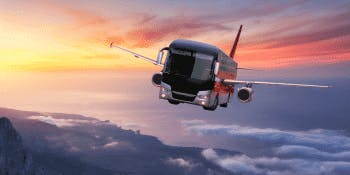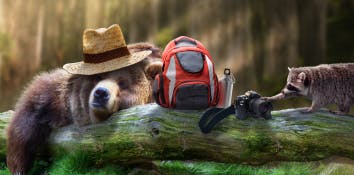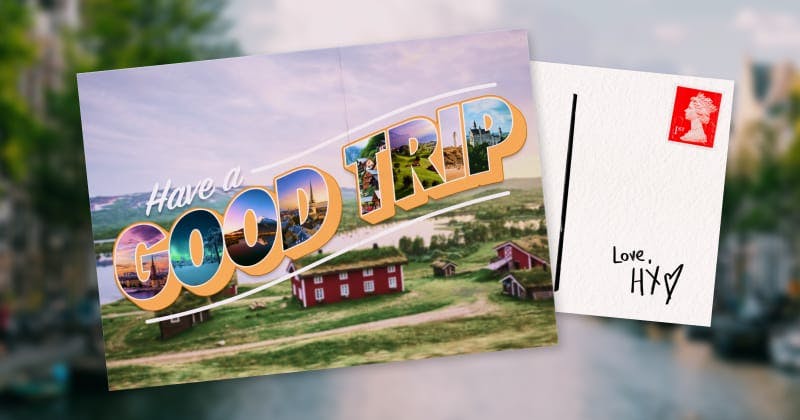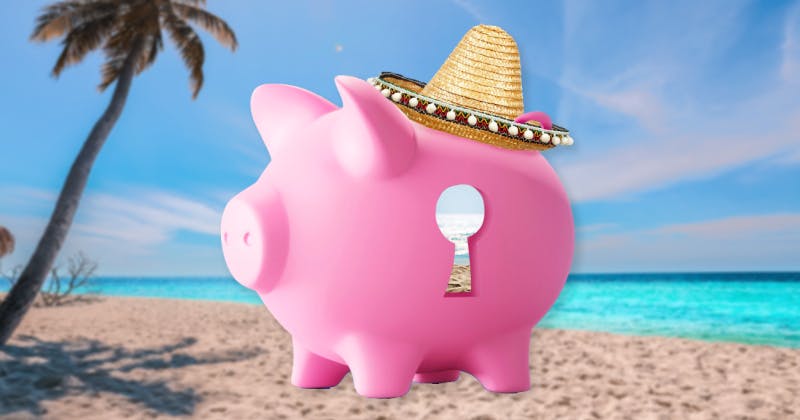
Switzerland Travel Guide
Whether you're here for Alpine peaks, culturally diverse cities or to indulge in world-beating chocolate, Switzerland guarantees a good trip.
What you'll find in this guide:
Top things to do in Switzerland
Practical Information
Facts about Switzerland
Getting to Switzerland
Getting around Switzerland
Switzerland weather
Best time to visit Switzerland
Switzerland highlights
Switzerland food
Switzerland for families
Accessibility in Switzerland
LGBTQI+ travel in Switzerland
Sustainable tourism in Switzerland
Switzerland FAQs
GMT +1
Swiss franc (CHF)
German, French, Italian, Romansh
Type C and J
1hr 40
Some facts about Switzerland
Two exports are likely to come to mind when you think of Switzerland. Swiss watches are some of the finest and most prestigious in the world, with famous brands like Rolex and Omega wrapped around the wrists of the rich and famous, and then there's the chocolate. As a travel company we have a soft spot for Toblerone, a must-buy at the airport, which together with Lindt and Nestlé has made Swiss chocolate a global favourite.
But do look beyond the stereotypes. With four official languages, Switzerland is one of Europe's most culturally and linguistically diverse countries. German is the most widely spoken language, but you're more likely to hear Italian in Ticino, French in Vaud and Romansh in the Grisons, and each area has its own unique identity.
It's a good place for a good trip too. Switzerland is first place on our Good Trip Index, the Holiday Extras guide to travelling ethically, sustainably and well. The country gets top marks for human freedom, animal welfare and quality of life, and comes in just behind Denmark for women’s rights, so you'll be welcomed with open arms no matter who you are.
Practical Info
Culture and etiquette
Religion
Christianity is the main religion in Switzerland, with around two-thirds of the population identifying as either Catholic or Protestant. There's a large Muslim community too, and many people aren't religious at all.
Tipping
A service charge is usually included at restaurants and hotels, but it's common to leave a little extra for good service.
Smoking
Smoking is banned in most indoor public places, including bars, restaurants and public transport.
Public offences
It’s illegal to cover your face in the Swiss cantons of Ticino and St Gallen. This included balaclavas, full veils, burqas, niqabs or any garment or mask that’s used to hide your face. Switzerland narrowly voted in favour of banning face coverings in public in 2021 – the proposal won by 51.2% to 48.8%, and the Swiss parliament passed the law in 2023.
Language 101
Switzerland is one of Europe’s most linguistically diverse countries, boasting four official languages. In central and eastern areas you’re likely to hear German (spoken by 63.5% of the population), in the west it’s French (22.5%), in the south it’s Italian (8.1%) and in parts of the southeast it’s Romansh (0.5%).
English is widely spoken throughout Switzerland so you shouldn’t have trouble communicating with the locals, but it can’t hurt to brush up on your German, French, Italian or Romansh depending on where you travel.
Jabs, visas and other advice
For up-to-date advice on jabs, visas and other foreign advice, we recommend following the government’s website.
Emergency numbers
In a general emergency, call 112. For an ambulance call 144, for fire call 118 and for police call 117.
TopGetting to Switzerland
The fastest way to get to Switzerland from the UK is to fly. It takes around 1 hour 40 minutes to fly from London to Geneva and Zurich.
You can also travel to Switzerland by train. The quickest route is to take the Eurostar from London to Paris, stop off for some escargots, then catch the high-speed train to Switzerland. From Paris it takes around 3 hours to get to Geneva and Basel, and 4 hours for Zurich.
You can also drive there, but it'll take a fair while longer. Take the Eurotunnel from Folkestone to Calais, or the ferry from Dover, and from there it takes just over 7 hours to drive to Basel in northern Switzerland. Sounds like a long drive to do at once, but don't worry – the Champagne region is en route if you fancy splitting the journey up.

Getting around Switzerland
Switzerland has an excellent rail network, with trains travelling between major towns and cities as well as into the countryside and mountainous winter resorts. The roads are generally good quality too so hiring a car is an option, although trains are often more efficient and driving can be difficult in mountainous areas.
The public transport in major towns and cities is excellent too. You'll find trams and trains in Basel, Geneva, Zurich and more, which tend to be good value.
What's the weather like in Switzerland?
The weather in Switzerland can vary quite a lot depending on where you are, particularly if you're up in the mountains, but generally speaking there are four distinct seasons.
Summer is usually warm, with temperatures ranging between 20°C and 30°C, while you can expect a snow-capped wonderland in the height of winter. Spring and autumn tend to sit somewhere between these two extremes, with colourful flowers blooming in spring and red hues taking over in autumn.
When’s the best time to visit Switzerland?
Switzerland is most attractive to tourists at its two extremes – the height of summer and the middle of winter. June to September is perfect for hanging out at one of Switzerland’s many famous lakes, and the cooler temperature up in the Swiss Alps is perfect for a hike or a cycle. At the other end of the spectrum, December to April is ski season. The Alps will be covered in a perfect blanket of snow, and traditional guggenmusik bands bring joy to Swiss towns, cities and resorts.
The shoulder season is a great time to visit if you want to save some money and avoid the crowds. May and September are perfect for a dip in the lake, hiking, cycling and sampling wine and one of many amazing Swiss vineyards.
Top
Switzerland ranks 1st on the Good Trip Index
This score is calculated based on Sustainability, Human Rights, Women's Rights, Press Freedom, Quality of Life, LGBTQI+ Rights and Animal welfare
Find out moreSwitzerland highlights
Zermatt and the Matterhorn
Does a charming mountain village at the foot of one of the most famous Alpine peaks sound good to you? You’ll love Zermatt, which is a paradise for skiers in winter and hikers in summer. It’s overlooked by the dramatic Matterhorn, which is so iconic that it inspired Tobelerone’s pyramid shape.

Jungfrau
Offering some of the most stunning scenery in Switzerland, the Jungfrau region is home to the towns of Grindelwald, Mürren, Wengen, and Lauterbrunnen. It's perfect for sightseeing, hiking, and skiing.

Lake Geneva
The region around Lake Geneva, Europe's largest Alpine lake, is home to vineyards and the beautiful cities of Geneva and Lausanne. The perfect choice for the best of lake life and city break essentials like world-class museums, historic old towns and vibey cafes.

Bern
The answer to many a pub quiz question, Switzerland’s capital city Bern is an absolute stunner. Its well-preserved medieval centre is so gorgeous that it’s a UNESCO World Heritage Site. Don't miss the famous Bear Park and the Zytglogge clock tower.

Lake Lugano and Ticino
The Italian-speaking region of Switzerland, with Lake Lugano at its centre, has a Mediterranean flair and offers a blend of Swiss and Italian culture. Drink espressos and wine in classy piazzas, then take your pick of three medieval castles to explore.

Lucerne
Famous for its medieval architecture, Lucerne sits among snow-capped mountains on Lake Lucerne. Don’t miss the Chapel Bridge and the Lion Monument.
 Top
TopWhat to eat in Switzerland
There are two things in particular that Switzerland does very well when it comes to food – chocolate and cheese. Starting with the country’s world-renowned chocolate, you’ll find everything from luxurious truffles to bars filled with all types of nuts, fruits, and nougats. Switzerland eats more chocolate per person than anywhere else in the world, so you can be sure that the Toblerone, Lindt, Cailler and more are as good as it gets.
You’d think chocolate dominates the dessert menu, but the best sweet treats often celebrate nuts or fruit instead. Bündner Nusstorte comes to mind, a delicious nut-filled pastry from the canton of Graubünden that’s the perfect pairing to afternoon tea or coffee.
And then there’s the cheese, or more specifically melted cheese. Fondue is a must while you’re there – think moreish melted Gruyere, Emmental and Appenzeller paired with white wine, garlic, bread for dipping and a lovely bit of kirsch. Or go for Raclette, which is scraped from a melted wheel of cheese onto potatoes, pickled onions, and gherkins.
Switzerland for families
Switzerland has to be one of the best places to go on holiday with the kids. It’s clean and safe, there’s loads to do, public transport is excellent and it has its own Chocolate Train. What more could you ask for?
The Chocolate Train runs between Montreux and the Cailler-Nestlé chocolate factory, and when you get to the factory you can learn all about how they make their chocolate so delicious on a guided tour. And of course there’ll be plenty of opportunities for a chocolate tasting, too.
Elsewhere, Switzerland’s Alpine landscapes offer hiking, skiing, snowboarding and sledding, plus many ski resorts have ski schools for children and beginners. Or head to one of the county’s amazing lakes like Geneva, Lucerne and Zurich for some boating, swimming and a picture-perfect picnic.
There’s plenty going on in the main towns and cities too. Interactive museums like the Swiss Science Center Technorama, the Transport Museum in Lucerne, or the International Red Cross and Red Crescent Museum in Geneva can be educational and fun for the whole family.

Accessibility in Switzerland
Switzerland is well-equipped for travellers with accessibility needs. Public transport is as good as anywhere in Europe – train stations usually have lifts to help board trains, plus buses in cities have ramp access. You’ll find lots of modern accommodation that’s been designed with accessibility in mind, and plenty of museums and popular tourist attractions have been adapted too.
Switzerland Tourism has lots of helpful information for people with accessibility needs travelling to Switzerland.
Switzerland for LGBTQI+ travellers
Switzerland is a very welcoming country to LGBTQI+ travellers. The country legalised same-sex marriage, adoption and IVF access in 2022, people have been able to change their legal gender by self-identification since 2022, and certain forms of homophobic discrimination have been illegal since 2020. Public opinion is largely positive towards the LGBTQI+ community too, with 82% of respondents to a 2020 survey saying they support same-sex marriage.
LGBTQI+ Pride events usually take place throughout the summer, with everything from parades, art exhibitions and parties bringing life to major Swiss towns and cities. Geneva and Zurich Pride are usually in June, Bern’s in July and Lucerne’s in August.
Sustainable tourism in Switzerland
It would be hard not to have any impact on the environment on your trip to Switzerland, but there are plenty of things you can do to reduce your carbon footprint.
Instead of flying, why not take the train? Catch the Eurostar from London to Paris, stop off for lunch and a glass of world-beating fizz, and from there you can reach Geneva and Basel in 3 hours or Zurich in 4. The journey takes a fair bit longer, but it's much better for the environment than flying plus there’s the added bonus of seeing Paris as part of the same trip.
Switzerland is keen for travellers to visit the country, and has its own sustainability strategy to help visitors reduce their impact on the environment. ‘Swisstainable’ travel can be summarised by four main themes:
- Enjoy nature up close and at first hand.
- Experience the local culture in an authentic way.
- Consume regional products.
- Stay for longer and delve deeper.
For tips and advice on having a more sustainable trip to Switzerland, take a look at Switzerland Tourism’s sustainability page.
TopSwitzerland FAQs
Do I need a visa to travel to Switzerland from the UK?
While Switzerland isn’t a member of the European Union, it is in the Schengen area. This means you can travel to Switzerland from the UK for up to 90 days in any 180-day period without a visa. This applies if you travel as a tourist, to visit family and friends, to attend business meetings, cultural or sports events and for short-term studies or training.
At Swiss border control, you might need to show proof of your accommodation, travel insurance, a return or onward journey and that you have enough money for your stay (about 100 Swiss francs per day).
What is the currency in Switzerland?
The Swiss currency is the Swiss franc (CHF). While euros are accepted in some places, we’d recommend paying in Swiss francs if you can to avoid poor exchange rates.
Is the tap water safe to drink in Switzerland?
Yes, tap water throughout Switzerland is safe to drink and of excellent quality. In fact, Swiss tap water has a much better ecological balance than bottled mineral water.
Top
























